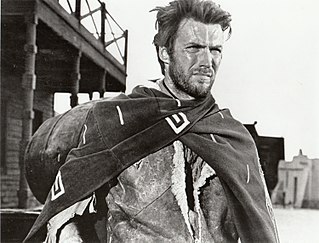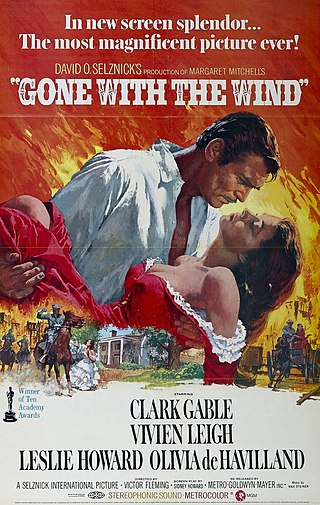
A comedy film is a film genre that emphasizes humor. These films are designed to amuse audiences and make them laugh. Films in this genre typically have a happy ending, with dark comedy being an exception to this rule. Comedy is one of the oldest genres in film, and it is derived from classical comedy in theatre. Some of the earliest silent films were slapstick comedies, which often relied on visual depictions, such as sight gags and pratfalls, so they could be enjoyed without requiring sound. To provide drama and excitement to silent movies, live music was played in sync with the action on the screen, on pianos, organs, and other instruments. When sound films became more prevalent during the 1920s, comedy films grew in popularity, as laughter could result from both burlesque situations but also from humorous dialogue.

A film genre is a stylistic or thematic category for motion pictures based on similarities either in the narrative elements, aesthetic approach, or the emotional response to the film.
Romantic comedy is a subgenre of comedy and romance fiction, focusing on lighthearted, humorous plot lines centered on romantic ideas, such as how true love is able to surmount most obstacles. In a typical romantic comedy, the two lovers tend to be young, likeable, and seemingly meant for each other, yet they are kept apart by some complicating circumstance until, surmounting all obstacles, they are finally united. A fairy-tale-style happy ending is a typical feature.
Genre is any style or form of communication in any mode with socially agreed-upon conventions developed over time. In popular usage, it normally describes a category of literature, music, or other forms of art or entertainment, based on some set of stylistic criteria. Often, works fit into multiple genres by way of borrowing and recombining these conventions. Stand-alone texts, works, or pieces of communication may have individual styles, but genres are amalgams of these texts based on agreed-upon or socially inferred conventions. Some genres may have rigid, strictly adhered-to guidelines, while others may show great flexibility.

A pastiche is a work of visual art, literature, theatre, music, or architecture that imitates the style or character of the work of one or more other artists. Unlike parody, pastiche pays homage to the work it imitates, rather than mocking it.

A whodunit is a complex plot-driven variety of detective fiction in which the puzzle regarding who committed the crime is the main focus. The reader or viewer is provided with the clues to the case, from which the identity of the perpetrator may be deduced before the story provides the revelation itself at its climax. The investigation is usually conducted by an eccentric, amateur, or semi-professional detective.

A stock character, also known as a character archetype, is a type of character in a narrative whom audiences recognize across many narratives or as part of a storytelling tradition or convention. There is a wide range of stock characters, covering people of various ages, social classes and demeanors. They are archetypal characters distinguished by their simplification and flatness. As a result, they tend to be easy targets for parody and to be criticized as clichés. The presence of a particular array of stock characters is a key component of many genres, and they often help to identify a genre or subgenre. For example, a story with the stock characters of a knight-errant and a witch is probably a fairy tale or fantasy.

A romance novel or romantic novel is a genre fiction novel that primary focuses on the relationship and romantic love between two people, typically with an emotionally satisfying and optimistic ending. Authors who have contributed to the development of this genre include Samuel Richardson, Jane Austen, and Charlotte Brontë.
A hybrid genre is a literary or film genre that blends themes and elements from two or more different genres. Works in hybrid genres are also referred to as cross-genre, multi-genre, mixed genre, or fusion genre. The Dictionary of Media and Communication describes hybrid genre as "the combination of two or more genres", which may combine elements of more than one genre and/or which may "cut across categories such as fact and fiction". Some such sub-genres have acquired their own specialised names, such as comedy drama, romantic comedy ("rom-com"), horror Western, and docudrama.

Romance films involve romantic love stories recorded in visual media for broadcast in theatres or on television that focus on passion, emotion, and the affectionate romantic involvement of the main characters. Typically their journey through dating, courtship or marriage is featured. These films make the search for romantic love the main plot focus. Occasionally, romance lovers face obstacles such as finances, physical illness, various forms of discrimination, psychological restraints or family resistance. As in all quite strong, deep and close romantic relationships, the tensions of day-to-day life, temptations, and differences in compatibility enter into the plots of romantic films.
The following outline is provided as an overview of and topical guide to fiction:

Fiction is any creative work, chiefly any narrative work, portraying individuals, events, or places that are imaginary or in ways that are imaginary. Fictional portrayals are thus inconsistent with history, fact, or plausibility. In a traditional narrow sense, "fiction" refers to written narratives in prose – often referring specifically to novels, novellas, and short stories. More broadly, however, fiction encompasses imaginary narratives expressed in any medium, including not just writings but also live theatrical performances, films, television programs, radio dramas, comics, role-playing games, and video games. The publishing industry divides fiction into adult fiction, young adult fiction, new adult fiction, and children's fiction.
A parody is a creative work designed to imitate, comment on, and/or mock its subject by means of satirical or ironic imitation. Often its subject is an original work or some aspect of it, but a parody can also be about a real-life person, event, or movement. Literary scholar Professor Simon Dentith defines parody as "any cultural practice which provides a relatively polemical allusive imitation of another cultural production or practice". The literary theorist Linda Hutcheon said "parody ... is imitation, not always at the expense of the parodied text." Parody may be found in art or culture, including literature, music, theater, television and film, animation, and gaming. Some parody is practiced in theater.

Fantasy is a genre of speculative fiction involving magical elements, typically set in a fantasy world and usually inspired by mythology or folklore. The term "fantasy" can also be used to describe a "work of this genre", usually literary.

In film and television, drama is a category or genre of narrative fiction intended to be more serious than humorous in tone. The drama of this kind is usually qualified with additional terms that specify its particular super-genre, macro-genre, or micro-genre, such as soap opera, police crime drama, political drama, legal drama, historical drama, domestic drama, teen drama, and comedy-drama (dramedy). These terms tend to indicate a particular setting or subject matter, or they combine a drama's otherwise serious tone with elements that encourage a broader range of moods. To these ends, a primary element in a drama is the occurrence of conflict—emotional, social, or otherwise—and its resolution in the course of the storyline.

The following outline is provided as an overview of and topical guide to fantasy:
A bromantic comedy is a comedy film genre that takes the formula of the typical "romantic comedy" but focuses on close male friendships.

Romance, is a "a fictitious narrative in prose or verse; the interest of which turns upon marvellous and uncommon incidents". This genre contrasted with the main tradition of the novel, which realistically depict life. These works frequently, but not exclusively, take the form of the historical novel. Walter Scott describes romance as a "kindred term", and many European languages do not distinguish between romance and novel: "a novel is le roman, der Roman, il romanzo".











